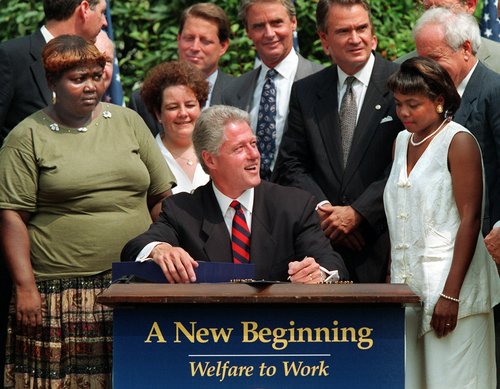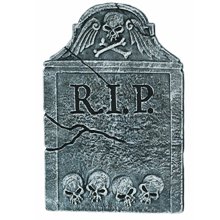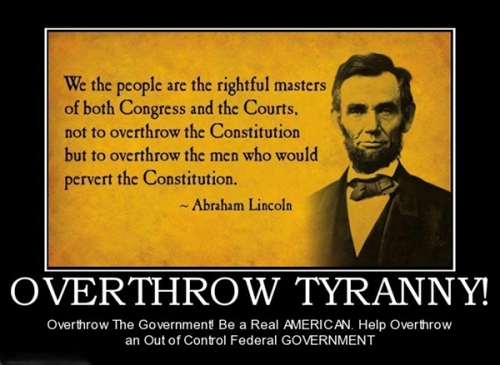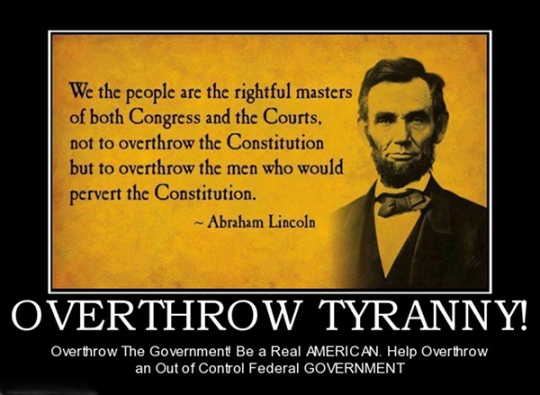The Homeless Dads: The Bad Deal Divorce
John McElhenney still tries to see the balance in his divorce decree. But after losing everything twice, he’s convinced we men need to fight for equal consideration after the marriage has ended.
 The typical divorce is actually pretty painful. The standard DEAL is almost an assault to fatherhood, and we need to fight to change it. In the most common arrangement, Mom gets the kids and house, dad gets the child support payment. It’s how things used to work. But today, unfortunately, the courts still go by this structure unless there is significant fight to something difference.
The typical divorce is actually pretty painful. The standard DEAL is almost an assault to fatherhood, and we need to fight to change it. In the most common arrangement, Mom gets the kids and house, dad gets the child support payment. It’s how things used to work. But today, unfortunately, the courts still go by this structure unless there is significant fight to something difference.
There are a few problems with this pattern.
 The non-custodial parent is assumed to be a deadbeat when they are calling the AG’s office. You are segmented into custodial or non-custodial parent at the beginning. If you are the non-custodial parent the only reason you’d be calling is you are behind on your child support.
The non-custodial parent is assumed to be a deadbeat when they are calling the AG’s office. You are segmented into custodial or non-custodial parent at the beginning. If you are the non-custodial parent the only reason you’d be calling is you are behind on your child support.
When we complain about unavailable dads, or dads that check-out after divorce, here are a few of the reasons why.
- The child support burden is a lot of money.
- Dads might be resentful of the “money only” role they are being put in.
- When dad is asked to leave the marital home they are often forced to move in with family members or friends, this is largely because of the cost of child support.
- In addition to $500+ per kid in child support (estimate) the dad is also asked to pay for health insurance. (Today, in my case this is an additional $1,200 per month with two kids.
 So let’s see, I’ve got no home. I’m paying $1,200 a month for child support and $1,200 a month for health care. How can I afford an apartment? If I don’t have a killer job ($2,400 after tax expenses before I get a dollar for myself or my survival. Well, that’s a pretty steep hill to climb.
So let’s see, I’ve got no home. I’m paying $1,200 a month for child support and $1,200 a month for health care. How can I afford an apartment? If I don’t have a killer job ($2,400 after tax expenses before I get a dollar for myself or my survival. Well, that’s a pretty steep hill to climb.
IF the playing field were equal, I would guess a lot more divorces would be negotiated in good faith. Today, even if you declare a collaborative divorce, the issue of money is liable to strike the dad in the pocketbook in a way the mom, to start out with, does not even have to consider. RARE is the case where the dad is given full custody and the mom pays child support.
Shouldn’t we start with 50/50 in both financial responsibility AND parenting time? This is the fight we are fighting in the courts today. I’m considering going back to court to reset the arrangement. I was attempting a collaborative divorce, but in the end I was handed this lopsided deal. I have to earn over $3,000 per month (taking taxes out BEFORE I pay the mom) before I have a chance at even putting food on the table.
 This leaves a lot of dads as deadbeats, not because they are actually trying to shirk their responsibility, but because the mom and the court have saddled them up with so much financial liability that they cannot afford to make the payments each month. At that point the dad is subject to financial liens, foreclosure, and checking account freezes.
This leaves a lot of dads as deadbeats, not because they are actually trying to shirk their responsibility, but because the mom and the court have saddled them up with so much financial liability that they cannot afford to make the payments each month. At that point the dad is subject to financial liens, foreclosure, and checking account freezes.
You know what happens when the AG’s office freezes your account?
- The bank charges you $57 – $150 for the freeze.
- The bank processes no further payments (rent, car payments, even your child support payments)
- You bounce checks.
- You’re credit get’s screwed.
- You end up with an additional $200 – $400 in fees.
And you know what the AG’s officer will tell you? (The Humans Of Divorce, Dear AG’s Office Special Cases Officer Mr. McK!)
 Fair treatment of fathers begins at the beginning of the relationship. BEFORE you have kids, you can agree to parent 50/50. If that’s the deal, you should have the discussion about if things don’t work out. (I’m not talking prenuptial, just an understanding) In my marriage we started out 50/50, but as soon as she decided she wanted a divorce (yes, it was her idea) the arrangement went to the cutting floor and I was handed the dad deal. A bad deal for everyone.
Fair treatment of fathers begins at the beginning of the relationship. BEFORE you have kids, you can agree to parent 50/50. If that’s the deal, you should have the discussion about if things don’t work out. (I’m not talking prenuptial, just an understanding) In my marriage we started out 50/50, but as soon as she decided she wanted a divorce (yes, it was her idea) the arrangement went to the cutting floor and I was handed the dad deal. A bad deal for everyone.
As the dad can’t afford a nice place for the kids to come visit, they want to come visit less. As mom’s house maintains some of its status and comfort (important for the kids) the dad is left in the cold to fend for himself AFTER he makes all the payments to help the mom stay in the house and live within the lifestyle the couple achieved TOGETHER. Except now it’s not together. And the cooperation you started with before you had kids, becomes a longterm ground war between “the money you owe me” and the money you can afford to pay without suing your ex.
Dad’s are just as important as moms. Even with young kids, the loss of either parent (my dad left when I was 5) is on of the most painful aspects of divorce. For the dad it is doubly devastating: the no longer have a house, and the courts and the AG’s office have now put their credit at risk, making employment and ability to pay even more difficult.
Consider the dads. If you’re a dad consider the courts and get an attorney who can show you examples of winning in court for fair arrangements.
 The money after divorce should be divided equally. Anything else puts man men at risk for debit issues, credit issues, and put them at risk of suicide and depression. Let’s put the balance back in divorce. Give both parents the benefit of the doubt. And both parents should be advocating for a 50/50 split in the same spirit they entered parenthood, with expectations of a 50/50 partnership. That partnership doesn’t end at divorce. But if we load up the man with all of the financial obligations and punish him for being late on a payment or two, we are hurting all the members of the family. The mom loses when the dad’s account is frozen. Even if the mom didn’t want it to happen. Once you’ve asked the AG’s office into your divorce, they never leave. (Inviting the Dinosaur Into Your Divorce)
The money after divorce should be divided equally. Anything else puts man men at risk for debit issues, credit issues, and put them at risk of suicide and depression. Let’s put the balance back in divorce. Give both parents the benefit of the doubt. And both parents should be advocating for a 50/50 split in the same spirit they entered parenthood, with expectations of a 50/50 partnership. That partnership doesn’t end at divorce. But if we load up the man with all of the financial obligations and punish him for being late on a payment or two, we are hurting all the members of the family. The mom loses when the dad’s account is frozen. Even if the mom didn’t want it to happen. Once you’ve asked the AG’s office into your divorce, they never leave. (Inviting the Dinosaur Into Your Divorce)
We need fair divorce laws. We need courts that will listen to the needs of both parents and consider 50/50 parenting as the desired outcome. Until we stand up and fight for equality AFTER marriage we will continue to be on the losing side of the post-marriage equation.

 As you’re reading this, consider the tyranny of the current child support regime in the United States and other modernized countries. Of course, these tyrants are also trying to finger you as they seek to take away any presumption of civil rights and any due process that a human being should have. That is the world we are living in. Only you can begin to change it, by banding together…
As you’re reading this, consider the tyranny of the current child support regime in the United States and other modernized countries. Of course, these tyrants are also trying to finger you as they seek to take away any presumption of civil rights and any due process that a human being should have. That is the world we are living in. Only you can begin to change it, by banding together… Anxiety over a project at work… a marital spat… financial trouble… health problems… the list of potential stressors is endless, but wherever your stress is coming from, it likely starts in your head.
Anxiety over a project at work… a marital spat… financial trouble… health problems… the list of potential stressors is endless, but wherever your stress is coming from, it likely starts in your head. You know the saying “when it rains, it pours”? This is a good description of chronic stress in your body, because it makes virtually everything harder. The term psychological stress is, in fact, misleading, because no stress is solely psychological… it’s not all in your head.
You know the saying “when it rains, it pours”? This is a good description of chronic stress in your body, because it makes virtually everything harder. The term psychological stress is, in fact, misleading, because no stress is solely psychological… it’s not all in your head. Police officers clearly face amplified stress on the job, and researchers found they were 21 times more likely to die of a heart attack during an altercation than during routine activities. This isn’t entirely surprising until you compare it to heart-attack risk during physical training, which increased only seven fold.
Police officers clearly face amplified stress on the job, and researchers found they were 21 times more likely to die of a heart attack during an altercation than during routine activities. This isn’t entirely surprising until you compare it to heart-attack risk during physical training, which increased only seven fold. People who grow up in poor socioeconomic conditions have higher levels of inflammatory markers, including interleukin-6 (IL-6) and C-reactive protein (CRP). They’re also twice as likely to develop type 2 diabetes as adults, a risk researchers say is partly due to the elevated inflammation.
People who grow up in poor socioeconomic conditions have higher levels of inflammatory markers, including interleukin-6 (IL-6) and C-reactive protein (CRP). They’re also twice as likely to develop type 2 diabetes as adults, a risk researchers say is partly due to the elevated inflammation. Digestive problems made Dr. Sapolsky’s list above, which makes sense because the stress response causes a number of detrimental events in your gut, including:
Digestive problems made Dr. Sapolsky’s list above, which makes sense because the stress response causes a number of detrimental events in your gut, including: Stress is implicated in cancer, not so much as a cause of cancer but because it seems to fuel its growth (or interfere with processes that might otherwise slow it down). For instance, the stress hormones norepinephrine and epinephrine encourage the growth of blood vessels that help prostate tumors to grow. Meanwhile, in women with pelvic growths (who were awaiting tests to see if the growths were cancerous or benign), those with good social support (and presumably therefore less stress) had more immune attack cells directed at the masses, Science News reported.
Stress is implicated in cancer, not so much as a cause of cancer but because it seems to fuel its growth (or interfere with processes that might otherwise slow it down). For instance, the stress hormones norepinephrine and epinephrine encourage the growth of blood vessels that help prostate tumors to grow. Meanwhile, in women with pelvic growths (who were awaiting tests to see if the growths were cancerous or benign), those with good social support (and presumably therefore less stress) had more immune attack cells directed at the masses, Science News reported.
 A system full of flawed logic that winds up hurting children more than it helps them.
A system full of flawed logic that winds up hurting children more than it helps them. But if a family finds itself in court, the system seems stacked against the poor. “Many states have two systems, one for married parents and one for poor people/welfare cases that are funneled through ‘paternity dockets’ where they barely get to say a word,” says Daniel Hatcher, a professor of law at the University of Baltimore and a prolific researcher of and advocate for child support reform. “It’s a tribunal that’s just about child-support and paternity. It’s crowded. Judges are jaded. They face huge case loads.” As the trend toward unmarried parenting continues, especially among the poor, these paternity dockets look to grow even more crowded, meting out rushed decisions to more families.
But if a family finds itself in court, the system seems stacked against the poor. “Many states have two systems, one for married parents and one for poor people/welfare cases that are funneled through ‘paternity dockets’ where they barely get to say a word,” says Daniel Hatcher, a professor of law at the University of Baltimore and a prolific researcher of and advocate for child support reform. “It’s a tribunal that’s just about child-support and paternity. It’s crowded. Judges are jaded. They face huge case loads.” As the trend toward unmarried parenting continues, especially among the poor, these paternity dockets look to grow even more crowded, meting out rushed decisions to more families. Maybe this obligation pushes him to scramble for a job. Perhaps it takes a few months. All the while, the child support debt has been accumulating. Now he has the monthly obligation plus back payment. (This is where the Bradley Amendment kicks in.) Some states terminate parental rights or throw a parent in jail or prison for back child support, or “non-compliance” with court orders. In South Carolina, the court can order the noncompliant father to appear to explain his delinquency, charge him $1,500 in the process, and jail him for up to a year. South Carolina is hardly an outlier. In Texas, a parent can be incarcerated even after he’s paid back his child support debt. (Texas is infamous for overcrowded courts, too. In one court in Harris County, Texas, a court master decided 500 paternity and child support cases in one day.)
Maybe this obligation pushes him to scramble for a job. Perhaps it takes a few months. All the while, the child support debt has been accumulating. Now he has the monthly obligation plus back payment. (This is where the Bradley Amendment kicks in.) Some states terminate parental rights or throw a parent in jail or prison for back child support, or “non-compliance” with court orders. In South Carolina, the court can order the noncompliant father to appear to explain his delinquency, charge him $1,500 in the process, and jail him for up to a year. South Carolina is hardly an outlier. In Texas, a parent can be incarcerated even after he’s paid back his child support debt. (Texas is infamous for overcrowded courts, too. In one court in Harris County, Texas, a court master decided 500 paternity and child support cases in one day.) In South Carolina, if the non-custodial parent accumulates $500 in back child support while unemployed, the state can suspend or revoke his driver’s license as punishment. Say our unemployed father is a truck driver. Without his license, he’s lost his ability to work, and probably his sense of autonomy as an adult, and his willingness to cooperate with a system that’s working against him. As Scott’s brother Rodney told the New York Times, “Every job he has had, he has gotten fired from because he went to jail because he was locked up for child support. He got to the point where he felt like it defeated the purpose.”
In South Carolina, if the non-custodial parent accumulates $500 in back child support while unemployed, the state can suspend or revoke his driver’s license as punishment. Say our unemployed father is a truck driver. Without his license, he’s lost his ability to work, and probably his sense of autonomy as an adult, and his willingness to cooperate with a system that’s working against him. As Scott’s brother Rodney told the New York Times, “Every job he has had, he has gotten fired from because he went to jail because he was locked up for child support. He got to the point where he felt like it defeated the purpose.” If a custodial parent—usually the mother—seeks Temporary Assistance to Needy Families (TANF, the program that replaced welfare) or food stamps, both parents are treated like bad children. The mother is required to name the father, establish paternity, and sue the father in court for support, even if they have an in-kind arrangement that’s working. The pursuit of child support can destroy relationships. The money, if he has it, often goes back to the state for supporting the brood, not to his children. Meanwhile, the dads who can’t pay may find themselves in jail or prison, unable to help mom in other ways, such as picking up the kids from school or throwing a ball around on weekends.
If a custodial parent—usually the mother—seeks Temporary Assistance to Needy Families (TANF, the program that replaced welfare) or food stamps, both parents are treated like bad children. The mother is required to name the father, establish paternity, and sue the father in court for support, even if they have an in-kind arrangement that’s working. The pursuit of child support can destroy relationships. The money, if he has it, often goes back to the state for supporting the brood, not to his children. Meanwhile, the dads who can’t pay may find themselves in jail or prison, unable to help mom in other ways, such as picking up the kids from school or throwing a ball around on weekends. In the 1980s and ‘90s, the notion of the “deadbeat dad” loomed large in the public conscious, in part because of one spectacularly flawed and widely-cited study—since retracted by its own author—that purported to show divorced mothers subsisting at a third of their former standard of living, while the fathers lived better than ever. For many custodial parents, child support is the road out of poverty. Much child support went uncollected, and enforcement policies were changed to improve the situation. Some policies worked; the Office of Child Support Enforcement today still publishes reports showing continued gains in money collected. Threat of jail was considered a good motivator for delinquent dads, and it may be in some cases.
In the 1980s and ‘90s, the notion of the “deadbeat dad” loomed large in the public conscious, in part because of one spectacularly flawed and widely-cited study—since retracted by its own author—that purported to show divorced mothers subsisting at a third of their former standard of living, while the fathers lived better than ever. For many custodial parents, child support is the road out of poverty. Much child support went uncollected, and enforcement policies were changed to improve the situation. Some policies worked; the Office of Child Support Enforcement today still publishes reports showing continued gains in money collected. Threat of jail was considered a good motivator for delinquent dads, and it may be in some cases. Old ideology probably contributes to our current policies as well—a view of faltering families that’s about as enlightened as something out of The Scarlet Letter. In England, Elizabethan Poor Laws of 1601 authorized towns to sue fathers of unwed mothers to reimburse them for assistance provided to their children. Early “bastardy acts” allowed colonies to incarcerate pregnant unwed mothers to protect the state from the financial burden of the child. Today’s laws are not as different as you’d expect. Lurking underneath lies an entrenched view that fathers are the lazy enemies of their own families, and poor mothers, in some way brought this on themselves. (You see this kind of view in the comments section of a recent piece in Concurring Opinions by law professors Naomi Cahn and June Carbone on the child support link in the Walter Scott affair.)
Old ideology probably contributes to our current policies as well—a view of faltering families that’s about as enlightened as something out of The Scarlet Letter. In England, Elizabethan Poor Laws of 1601 authorized towns to sue fathers of unwed mothers to reimburse them for assistance provided to their children. Early “bastardy acts” allowed colonies to incarcerate pregnant unwed mothers to protect the state from the financial burden of the child. Today’s laws are not as different as you’d expect. Lurking underneath lies an entrenched view that fathers are the lazy enemies of their own families, and poor mothers, in some way brought this on themselves. (You see this kind of view in the comments section of a recent piece in Concurring Opinions by law professors Naomi Cahn and June Carbone on the child support link in the Walter Scott affair.) But unmarried parents as a group get fewer resources, and if one parent sues the other in court, the kind of Orwellian child support laws that dogged Walter Scott kick in across the states. The overarching principle is the best interest of the child (a legal myth), but this aim gets subverted in policies that hurt the whole family.
But unmarried parents as a group get fewer resources, and if one parent sues the other in court, the kind of Orwellian child support laws that dogged Walter Scott kick in across the states. The overarching principle is the best interest of the child (a legal myth), but this aim gets subverted in policies that hurt the whole family.
 A new class action lawsuit seeks to end the automatic suspensions of driver’s license held by parents in New Jersey who are behind on child support payments. The lawsuit seeks to limit when suspensions would be allowed.
A new class action lawsuit seeks to end the automatic suspensions of driver’s license held by parents in New Jersey who are behind on child support payments. The lawsuit seeks to limit when suspensions would be allowed. The attorney that filed the lawsuit called the license suspensions “absurdly self-defeating,” noting that policy and statute can block parents from going to work, applying for jobs, or seeing their children.” “It doesn’t make sense. The idea that automatically suspending someone’s driver’s license because he is in arrears will force him to pay child support is an example of a well-intentioned, but not well thought-out law.”
The attorney that filed the lawsuit called the license suspensions “absurdly self-defeating,” noting that policy and statute can block parents from going to work, applying for jobs, or seeing their children.” “It doesn’t make sense. The idea that automatically suspending someone’s driver’s license because he is in arrears will force him to pay child support is an example of a well-intentioned, but not well thought-out law.” An international agreement to make it easier to enforce child support orders throughout the world is in danger of not being ratified in the United States because of nine lawmakers in Idaho. And what is wrong with that?
An international agreement to make it easier to enforce child support orders throughout the world is in danger of not being ratified in the United States because of nine lawmakers in Idaho. And what is wrong with that? Yet, there is some dishonesty. Republican Senator Sheryl Nuxoll led the opposition to the measure, testifying to the House committee that it would subject Idaho to Sharia law. You don’t have to object to Sharia to know that an international child support treaty is a bad idea. Look what international treaty has done to the United States so far. It pretends to do something it rarely truly does.
Yet, there is some dishonesty. Republican Senator Sheryl Nuxoll led the opposition to the measure, testifying to the House committee that it would subject Idaho to Sharia law. You don’t have to object to Sharia to know that an international child support treaty is a bad idea. Look what international treaty has done to the United States so far. It pretends to do something it rarely truly does. Gratefully, Idaho has an ‘ornery streak.’ Many residents don’t take lightly to being told what to do. Having a foreign government telling them what to do raises more hackles. Idaho Representative Ryan Kerby s voted against it because he felt the federal government was implying, “You need to sign it, and if you don’t we’re going to beat the crud out of you. They were incredibly rude.”
Gratefully, Idaho has an ‘ornery streak.’ Many residents don’t take lightly to being told what to do. Having a foreign government telling them what to do raises more hackles. Idaho Representative Ryan Kerby s voted against it because he felt the federal government was implying, “You need to sign it, and if you don’t we’re going to beat the crud out of you. They were incredibly rude.”
 Originally, the Constitution limited the jurisdiction of the federal government by making citizens of the state in which they were born or resided. According to the Constitution, the federal government could only have jurisdiction on a person if they lived in Washington DC or a US territory.
Originally, the Constitution limited the jurisdiction of the federal government by making citizens of the state in which they were born or resided. According to the Constitution, the federal government could only have jurisdiction on a person if they lived in Washington DC or a US territory. To receive federal grants, each state must require license suspension as a penalty for failure to pay child support. Most states have been on board with this policy since around 2007. Under
To receive federal grants, each state must require license suspension as a penalty for failure to pay child support. Most states have been on board with this policy since around 2007. Under 
 It’s not advertised as a crime to be poor, but it can land you behind bars when you also are behind on your child-support payments. Thousands of so-called “deadbeat” parents are jailed each year in the United States after failing to pay court-ordered child support. It sounds like a bad plot twist from a Charles Dickens novel. This unconstitutional and illegal activity is justified by the system though. It is claimed that the vast majority of non-custodial parents are jailed for deliberately withholding or hiding money out of spite or a feeling that they’ve been unfairly gouged by the courts. The truth is that parents are wrongly being locked away without any regard for their ability to pay, even without legal representation.
It’s not advertised as a crime to be poor, but it can land you behind bars when you also are behind on your child-support payments. Thousands of so-called “deadbeat” parents are jailed each year in the United States after failing to pay court-ordered child support. It sounds like a bad plot twist from a Charles Dickens novel. This unconstitutional and illegal activity is justified by the system though. It is claimed that the vast majority of non-custodial parents are jailed for deliberately withholding or hiding money out of spite or a feeling that they’ve been unfairly gouged by the courts. The truth is that parents are wrongly being locked away without any regard for their ability to pay, even without legal representation.